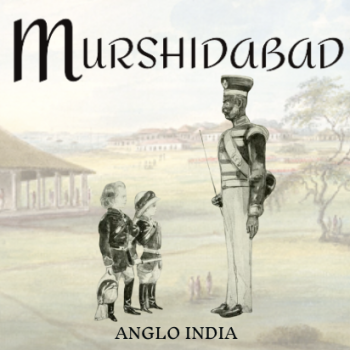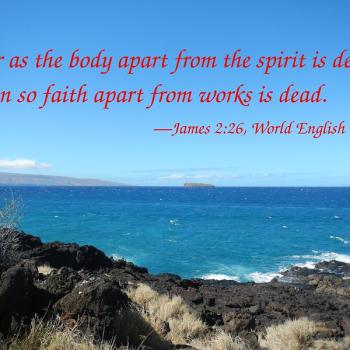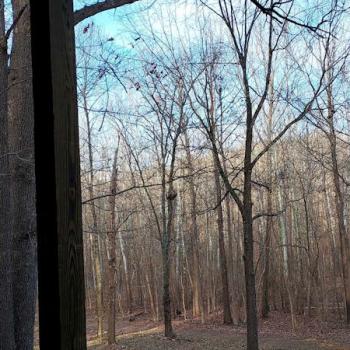Beyond the legends, there is precise documentation of Johnny's land holdings and nurseries—all of which we have carefully recorded in the book. It becomes clear that over his lifetime Johnny owned at least 1,200 acres of land and planted numerous nurseries in 19 counties (in Pennsylvania, Ohio, and Indiana). This kind of documentation helps to demonstrate that Johnny was not just a wandering, good-natured vagabond, but rather a skilled businessman and visionary entrepreneur who anticipated people's needs and filled them. At the same time, it should be remembered that business was not Johnny's primary love—it was the heavenly doctrines of the New Jerusalem.
All in all, there is a great deal of information about John Chapman, but it needs to be carefully analyzed in the light of Johnny's faith. Swedenborg says that our faith is the essence of who we are and influences everything we do. That's why this book is called The Core of Johnny Appleseed.
What was Johnny Appleseed's connection to Swedenborg?
The story of Johnny's connection to Swedenborg begins in 1784 when James Glen, traveling by sea to his sugar plantation in South America, stopped over in Philadelphia to give a lecture about Swedenborg. Among others who attended that lecture were Francis Bailey, the official printer of the United States Articles of Confederation; Hester Barclay, the first female convert to the New Church in the United States; and John Forrester Young, a 22-year-old apprentice studying to become an attorney. These three people became the first receivers of the heavenly doctrines in America.
Five years later, after Young was admitted to the bar, he set up a law practice in Greensburg, Pennsylvania, just southwest of Pittsburgh. It was there, in Greensburg, that John Chapman met John Young, the man who introduced him to the New Church and became his Swedenborgian mentor. Under the guidance of John Young, who eventually became a judge, Johnny became a receiver of what he called "Good news, right fresh from heaven." Johnny then went on to spend the rest of his life disseminating pages from New Church teachings, free of charge, throughout the frontier. In fact, his nursery business became a vehicle for enabling his larger love—propagating the truths of the New Jerusalem. Yes, he planted apple seeds in the American soil, but, more importantly, he desired to plant seeds of truth in the American soul.
Why does Johnny Appleseed still hold such a fascination for us today?
The first chapter opens with a quote from Walt Whitman: "Afoot and light-hearted, I take to the open road." I think this idea is deeply ingrained in the American spirit. For many Americans there has always been an idea of unlimited possibility, exploration and adventure. As a youngster, my favorite books were Jonathan Goes West and Boy with a Pack by Stephen Meader. Like Johnny Appleseed, Meader's characters leave their New England homes and head west traversing the rugged wilderness, floating down beautiful rivers, and encountering many adventures along the way. I think most of us have a desire to travel and see new sights, to take to the open road and have adventures along the way.
Johnny was both a spiritual and financial entrepreneur. Like Steve Jobs, he was ahead of his time, anticipating the needs of settlers before they arrived in a new location and meeting those needs with already-planted apple trees. Like Emanuel Swedenborg, he was ahead of his time, anticipating the spiritual needs of frontier folk with "Good news right fresh from heaven."
Something was happening in nineteenth-century America, something beautiful and exciting. It was a time of rapid economic growth as the country expanded westward. It was also a time of rapid spiritual growth as people were willing to take on new identities and new ways of looking at their spiritual lives. The story of Johnny Appleseed somehow captures all of this beautifully and reminds us that there is still plenty of room for exploration on the inner frontier of our lives.
What do you hope that readers will take away from this book?
Recent biographies of John Chapman (Johnny Appleseed) have described him as a beloved yet kooky eccentric who espoused an equally eccentric religion. This, I believe, has done a grave disservice to both John Chapman and the New Church, tarnishing the beautiful ideals which Johnny incarnated. My hope is that people who read this book will gain a new appreciation of just how sane Johnny Appleseed was—perhaps far saner than any person of his time, yet so far ahead of them that they hardly understood him.
At the same time, I hope that Swedenborgians will enjoy seeing that a receiver of the heavenly doctrines can be a humble person who loves the earth, enjoys life, and can relate well with everyone. In other words, this book may help people understand that the New Church is not just for the intellectual elite, but for all people, everywhere, who love God, love their neighbor, and desire to do good.
In that regard, it could be a perfect gift to give to a friend, with a smile, and with the comment, "Here's some good news, right fresh from heaven."




